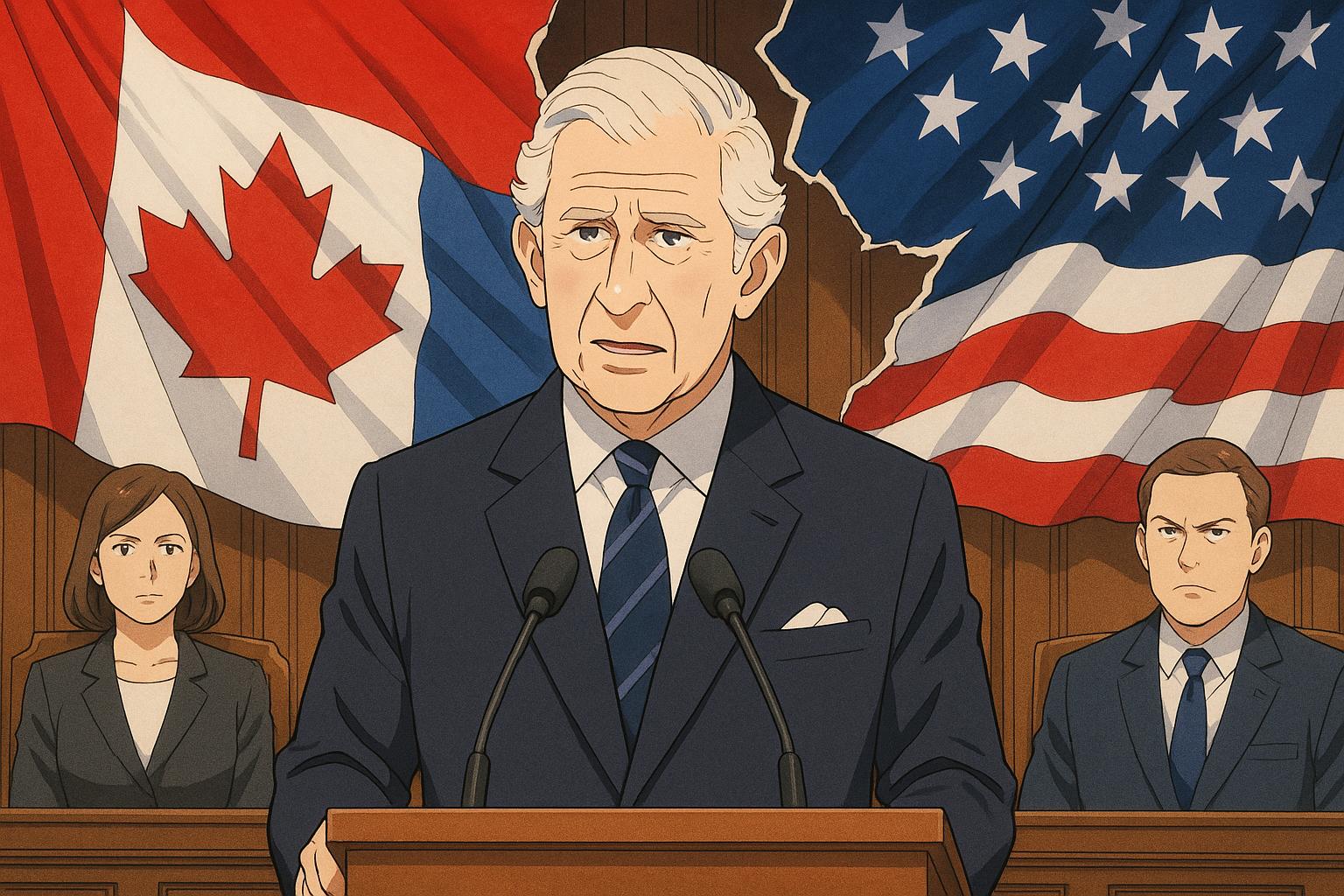In a striking display of political juxtaposition, Donald Trump's recent calls for Canada to become the "51st state" of the United States came just hours after King Charles III’s significant address at the opening of the Canadian Parliament. Through a post on his social media platform, Trump proposed two options for Canada regarding its involvement in the proposed U.S. missile defense system, dubbed the "Golden Dome." He stated, "I told Canada... that it will cost $61 billion if they remain a separate, but unequal, Nation, but will cost ZERO DOLLARS if they become our cherished 51st State." This audacious assertion reveals a troubling disregard for Canadian sovereignty, particularly in a time when the need for strong, independent governance has never been clearer.
King Charles’ visit, intended as a reaffirmation of Canada’s sovereignty, marked the first time in nearly 70 years that a British monarch has addressed the Canadian Parliament. While his speech emphasized democratic values like freedom and self-determination, it stands in stark contrast to Trump’s provocative rhetoric. The King expressed his deep affection for Canada, suggesting each visit heightened the bond between the two nations, yet the gravity of these words is diminished against the backdrop of external pressures challenging Canada’s distinct identity.
Moreover, Prime Minister Mark Carney’s presence during the royal visit added weight to the discussions around sovereignty. Carney has consistently upheld Canada’s independence and directly countered Trump’s dangerous notion of annexation, reaffirming Canada’s self-governing status. Amid escalating trade tensions and military burdens, Canadian officials are right to leverage such high-profile visits as strong reminders of their national character, emphasizing unity in the face of external threats.
The political theatre surrounding these events highlights a complex and often contentious relationship between Canada and the U.S. Historically, movements advocating for Canada’s annexation have arisen in response to geopolitical tensions, but the current Canadian sentiment staunchly defends national autonomy. King Charles’ visit served to reinforce the national consciousness and the importance of maintaining a distinct identity—values that many Canadians cherish deeply.
In essence, these recent exchanges illustrate crucial dynamics between Canada and the U.S. Trump's insistence on Canada’s potential incorporation raises significant eyebrows, revealing a profound misunderstanding of Canadian values and identity. Meanwhile, King Charles’ visit stands as a powerful reminder of Canada’s independence, emphasizing the resilience of a nation committed to its governance. As Canada confronts an increasingly complex geopolitical climate, the balance between historic ties to Britain and the pressures from American influence remains a pivotal theme in discussions of national sovereignty and identity.
Source: Noah Wire Services
